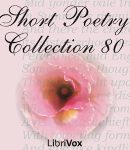
Short Poetry Collection 080
This is a collection of poems read by LibriVox volunteers for the month of June 2009. [chương_files]

This is a collection of poems read by LibriVox volunteers for the month of June 2009. [chương_files]
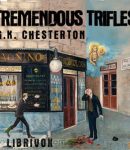
“None of us think enough of these things on which the eye rests. But don’t let us let the eye rest. Why should the eye be so lazy? Let us exercise the eye until it learns to see startling facts that run across the landscape as plain as a painted fence. Let us be ocular athletes. Let us learn to write essays on a stray cat or a coloured cloud. I have attempted some such thing in what follows; but anyone else may do it better, if anyone else will only try. ” (Gilbert Keith Chesterton) [chương_files]
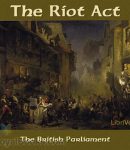
The Riot Act was passed by the British Parliament in 1714, the first year of the reign of George I, and came into effect in August 1715. This was a time of widespread social disturbance, as the preamble describes; the Act sought to put an end to this. A group of twelve or more people, “being unlawfully, riotously and tumultuously assembled”, would be read a proclamation; they must disperse within an hour, on pain of death. The same fate would befall anyone preventing the reading of the proclamation, or damaging buildings while on a riot. If the law enforcement officers happened to injure or kill a rioter, they were immune from prosecution. The reading of the proclamation, the wording of which is detailed in the Act, was the necessary first step before action could be taken against the rioters. This gave us the phrase “to read the riot act”, to give a stern warning or rebuke. The Act was repealed in Britain in 1973, but had long since fallen into disuse there. A version is still in force in Canada. [chương_files]
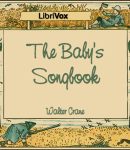
This is a collection of 14 songs chosen from Walter Crane’s “The Baby’s Opera” and “The Baby’s Bouquet” containing classic nursery rhymes from England, France, and Germany. The songs are sung by LibriVox’s very own Carol Stripling. [chương_files]
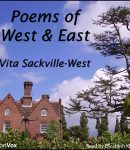
Victoria Mary Sackville-West, The Hon Lady Nicolson, best known as Vita Sackville-West, was an English author and poet. Her long narrative poem, The Land, won the Hawthornden Prize in 1927. She won it again, becoming the only writer to do so, in 1933 with her Collected Poems. She helped create her own gardens in Sissinghurst, Kent, which provide the backdrop to Sissinghurst Castle. She was famous for her exuberant aristocratic life, her strong marriage, and her passionate affair with novelist Virginia Woolf. Poems of West and East is a short collection of her early work, which was published in 1917. (Summary by Wikipedia and Elizabeth Klett) [chương_files]
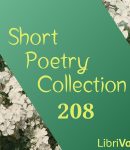
This is a collection of 67 poems read in English by LibriVox volunteers for September 2020. [chương_files]
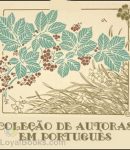
A literatura lusófona, do século XVII ao século XX, vem aqui representada por algumas de suas maiores escritoras. [chương_files]
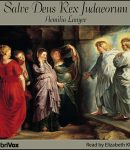
Aemilia Lanyer’s 1611 poem is far more than a retelling of The Passion. It comprises a spirited defense of Eve (and, by extension, all women), elegant praises for her female patrons, a catalogue of virtuous women of the ancient world, and closes with the first “country house” poem written by a woman in English. (Summary by Elizabeth Klett) [chương_files]

The Brothers Orville (1871 – 1948) and Wilbur (1867 – 1912) Wright made the first controlled, powered and sustained heavier-than-air flight, on 17th December 1903. They were not the first to build and fly aircraft, but they invented the controls that were necessary for a pilot to steer the aircraft, which made fixed wing powered flight possible. The Early History of the Airplane consists of three short essays about the beginnings of human flight. The second essay retells the first flight: “This flight lasted only 12 seconds, but it was nevertheless the first in the history of the world in which a machine carrying a man had raised itself by its own power into the air in full flight, had sailed forward without reduction of speed and had finally landed at a point as high as that from which it started.” (Introduction by Availle) [chương_files]
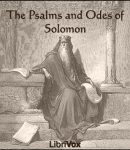
One of the Pseudepigrapha, the Psalms of Solomon is a group of eighteen psalms (religious songs or poems) that are not part of any scriptural canon (they are, however, found in copies of the Peshitta). The Psalms of Solomon were referenced in Early Christian writings, but lost to modern scholars until a Greek manuscript was rediscovered in the 17th century. Politically, the Psalms of Solomon are anti-Maccabee, and some psalms in the collection show a clear awareness of the Roman conquest of Jerusalem under Pompey in 63 BCE, metaphorically treating him as a dragon who had been sent by God to punish the Maccabees. The Odes of Solomon is a collection of 42 odes attributed to Solomon. Various scholars have dated the composition of these religious poems to anywhere in the range of the first three centuries AD. The original language of the Odes is thought to have been either Greek or Syriac, and to be generally Christian in background. (Summary by Wikipedia) [chương_files]
Copyright © 2024 | FreeAudible